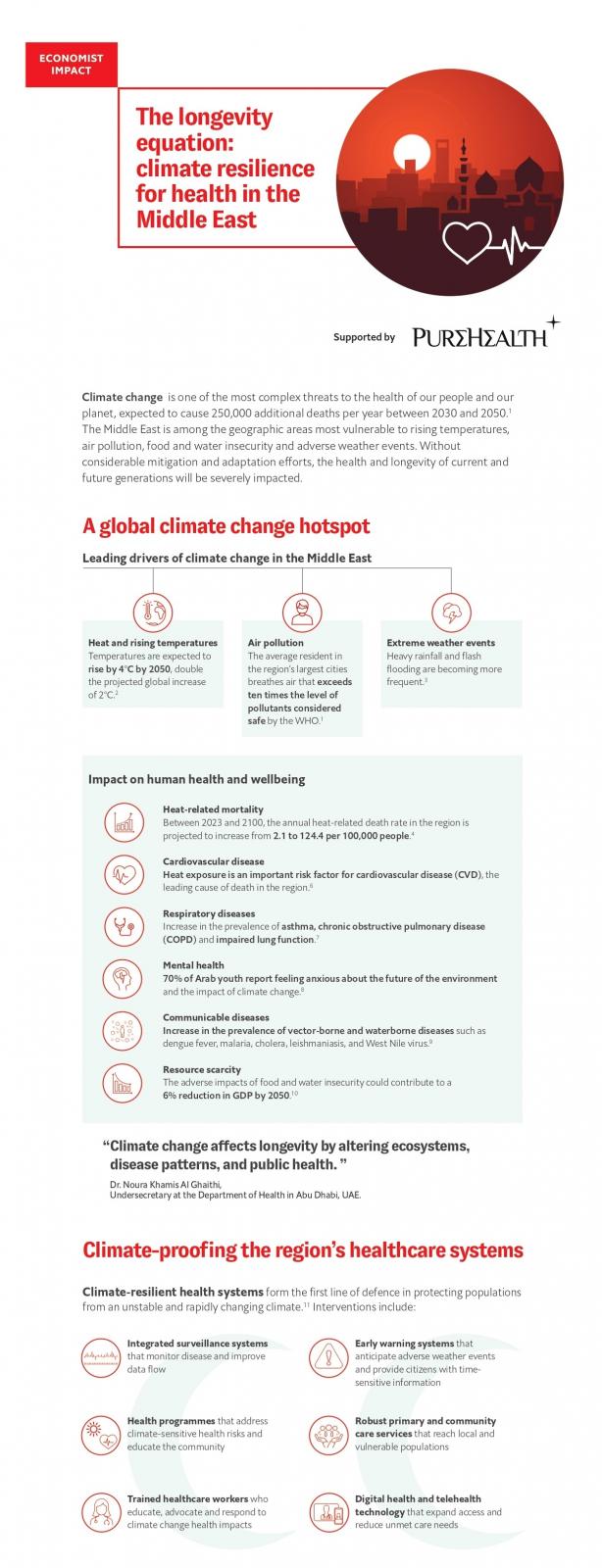Climate change is one of the most complex threats to the health of our people and our planet. The Middle East is among the geographic areas most vulnerable to rising temperatures, air pollution, food and water insecurity and adverse weather events. Without considerable mitigation and adaptation efforts, the health and longevity of current and future generations will be severely impacted.
COP28 will be the first to feature a “Health Day”, evidence of the growing realisation that the climate crisis is also a health crisis and an opportunity for the region to play a leading role in driving international co-operation on climate mitigation and public health.
The longevity equation: climate resilience for health in the Middle East is an Economic Impact report supported by PureHealth. Our report explores the consequences of the climate crisis for the health and wellbeing of populations in the Middle East and aims to stimulate discussion on the urgency for accelerated climate action in the region and the priorities for governments, health systems and all sectors.
We have identified a number of common priorities under three key pillars: knowledge empowerment, climate-smart health systems and multisector action. These can help guide regional stakeholders in mitigating and adapting to the impacts of climate change while also supporting the health and longevity of the region’s populations.
Knowledge empowerment:
-
Build awareness, education and accountability of the climate risk factors and their potential impact on human health across all stakeholder groups and levels of society
-
Improve surveillance, data collection and monitoring of the region’s climate change risk factors and their direct and indirect impact on human health
-
Support ongoing research to quantify the health impacts of climate change to raise the alarm and build an investment case for climate mitigation and adaptation efforts
Climate-smart health systems:
-
Develop national health adaptation plans (NAPs) that consider the unique country dynamics and health systems across the region
-
Strengthen the capacity of health systems to prevent, prepare and respond to climate change through robust surveillance and early warning systems and a trained workforce
-
Adopt initiatives to reduce emissions and unnecessary waste from regional health systems and hold suppliers accountable for their climate commitments
Multisector action:
-
Integrate health into national climate mitigation and adaptation strategies and support cross-sectoral collaboration and accountability
-
Consider the co-benefits of public health action and environmental sustainability in current and future urban development
-
Expand the scope of climate mitigation and adaptation beyond national borders through regional data sharing, resource sharing and collaboration
Infographic






